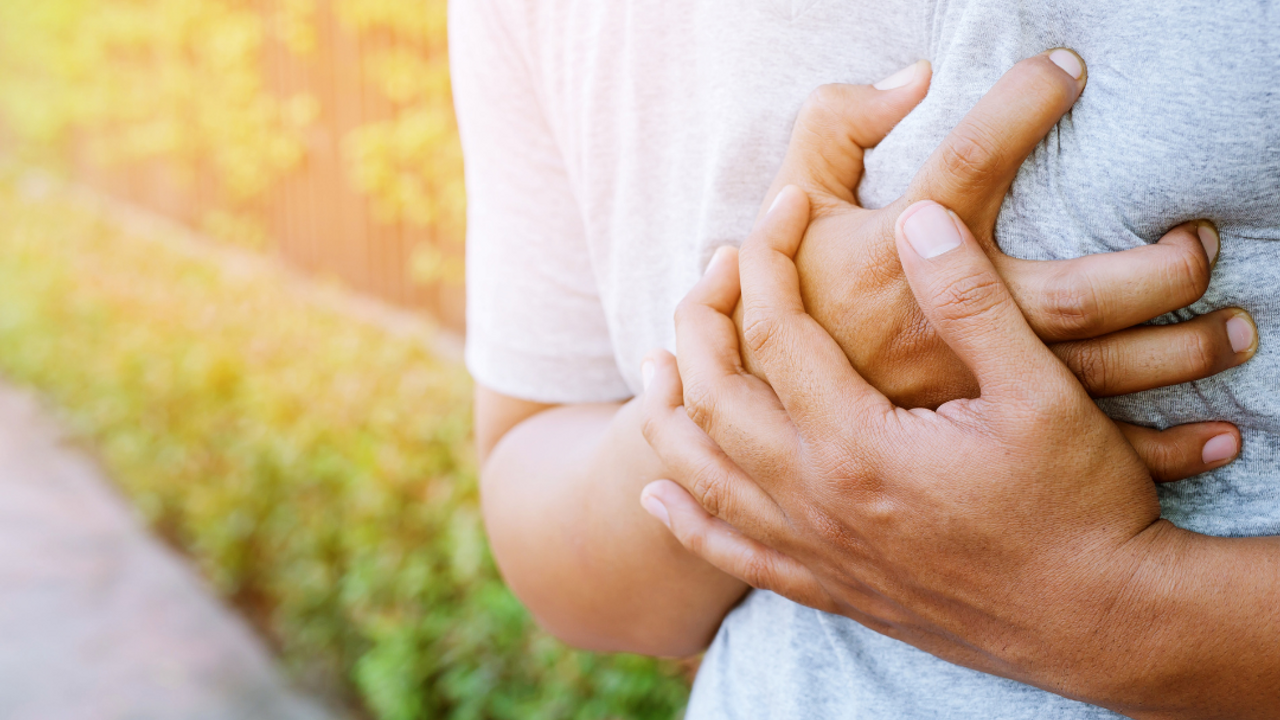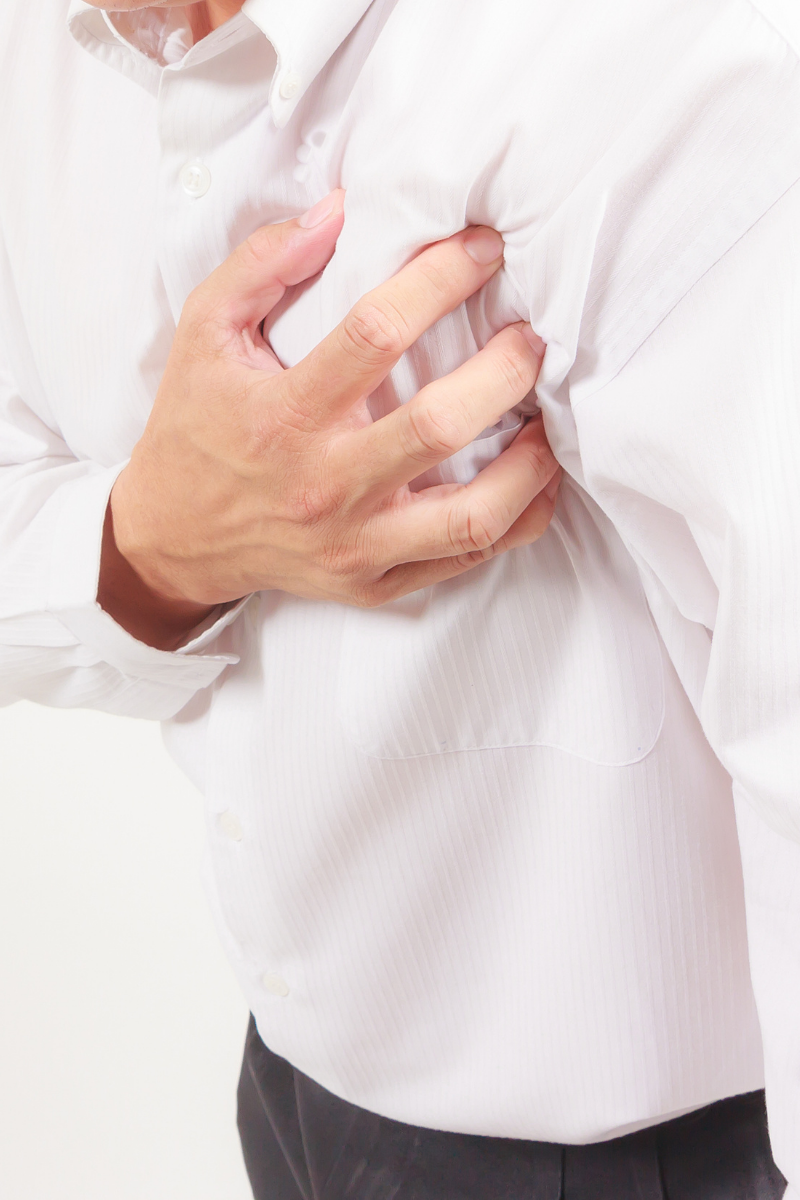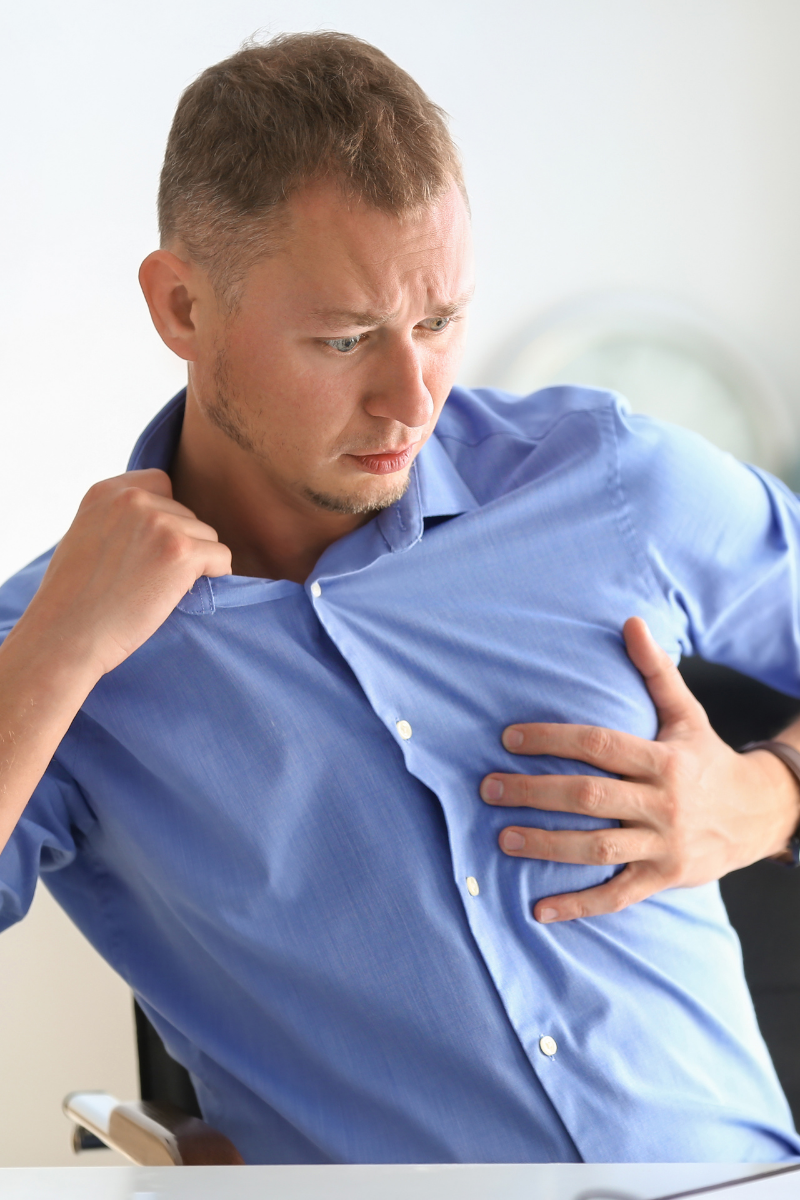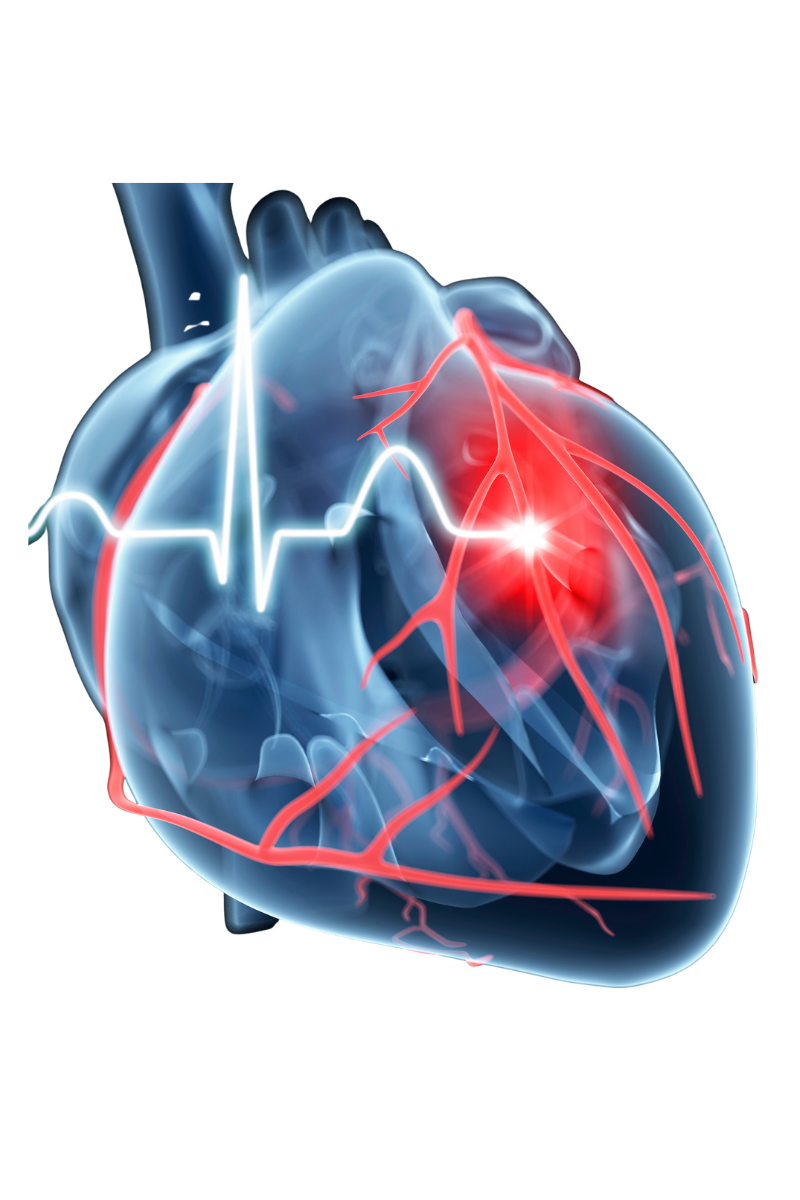How to Tell the Difference Between a Panic Attack and a Heart Attack

It’s not uncommon for people to have anxiety about Heart Attacks, or a Heart Attack fear.
Especially amongst people struggling with Panic, as Panic Attacks can feel very similar.
Often you’re left wondering, “Am I having a Heart Attack or a Panic Attack?"

You might notice your chest tighten, your heart start pounding or fluttering and you start to sweat profusely.
Often people’s minds start racing to quickly figure out what’s going on, and with far more publicity on heart attacks than panic attacks, it’s easy for the mind to jump to that conclusion.
It’s that much more frightening and confusing if you’ve never had either a heart attack or panic attack. But even if you have had panic attacks before, you may wonder, “how do I know it's a panic attack and not a heart attack?”
So what’s the difference?
What’s a Heart Attack?
A heart attack is when part of your heart doesn’t get enough blood. This usually happens because an artery that supplies blood to the heart is blocked.
Common heart attack symptoms include:
- Chest pain or pressure
- Pounding or racing heart
- Feeling lightheaded or faint
- Sweating, including cold sweats
- Pain or discomfort in the upper body, such as the jaw, neck, arms, shoulders or back
- Shortness of breath
- Nausea or vomiting
- Feeling of impending doom
What’s a Panic Attack?
A panic attack is a sudden spike in adrenaline that feels like an overwhelming attack of anxiety.
It’s not uncommon to have a one-off panic attack at some point in your life, but some people get recurrent panic attacks of increasing frequency.
This can be a result of Panic Disorder, which is when fear of having panic attacks raises adrenaline, causing them to happen (called a panic cycle).
Symptoms of a panic attack include:
- Sudden feelings of strong anxiety and fear
- Chest pain
- Trouble breathing
- Pounding or racing heart
- Sweating
- Shaking or trembling
- Weakness or dizziness
- Stomach pain or nausea
- Feeling of impending doom
The difference between a panic attack and a heart attack
That’s much clearer now, right?
Yeah, I thought not.
You may be thinking that the symptoms seem rather similar.
Which is why one of the most common conclusions people come to when having a panic attack is that they’re having a heart attack.
Other common fears are:
- “I’m having a stroke”
- “I’m losing my mind or going insane”

- “If I get any more anxious I’ll do something really embarrassing, like bowl everyone over running out of this airplane”
So how do you differentiate between a panic attack and a heart attack?
How do you know when to ride it out and when to call an ambulance?
Let’s look at the differences, so you can tell them apart.
What started the attack?
Heart attacks tend to happen after physical strain or exertion. A heart attack might happen after chopping wood or walking up a long flight of stairs.
You would only have a panic attack after exercise if there was an emotional stress trigger with it (i.e. you feared exercise would cause you harm or trigger a panic attack).
If the attack happened with an emotional rather than physical trigger – you were just watching a movie, or at a party – it may well be a panic attack.
What if the symptoms hit you at night?
Both panic attacks and heart attacks can wake you from sleep. But there’s a key difference: People who have night-time, or nocturnal, panic attacks usually have daytime panic attacks, too.
So if you wake up with chest pain or other symptoms, and you have a history of panic attacks, it’s probably a panic rather than a heart attack.
Where’s the pain?
With a heart attack, pain radiates to other areas like the arm, jaw or neck. If it’s a panic attack, pain will typically stay in the chest.
How does your chest feel?
Panic attacks often come with:
- Sharp or stabbing pain (not typical with a heart attack).
- Heart racing or chest discomfort that’s hard to describe.
Heart attacks feel like:
- Chest pressure.
- Feeling of squeezing, like an elephant sitting on your chest.
- Achy or burning sensation, like heartburn.
What about a pounding heart?
In many cases, a panic attack triggers a fast heart rate, also known as tachycardia. The heart rate may speed up to 200 beats per minute or even faster.
as tachycardia. The heart rate may speed up to 200 beats per minute or even faster.
A fast heart rate can make you feel lightheaded and short of breath. Or you might feel fluttering or pounding in the chest. Usually, tachycardia that happens in response to emotional stress and only lasts a few minutes is not harmful. It’s only if it happens regularly, or you have possible symptoms of a heart attack, that you would want to seek medical care.
How long is it lasting?
Panic attack symptoms last a few minutes or up to an hour. Then, the symptoms disappear, and you feel better. But a heart attack won’t let up.
Pain and symptoms of a heart attack might keep going or come in waves where it gets better and worse. Heart attacks can cause severe chest pain, like a 9 or 10 on the pain scale. Then later, the pain may drop to a 3 or 4 before it gets worse again. The pain might change, but it won’t go away.
Can a panic attack cause a heart attack?
Emotional stress plays a role in both conditions. Panic attacks and heart attacks can occur during or after a stressful situation. But most of the time, people have a panic attack rather than a heart attack in response to emotional stress.
Panic Disorder
Panic Disorder happens when we begin to fear panic attacks. This worry or anxiety about having them causes a regular release of adrenaline that makes the panic attacks more frequent.
Wondering if this might describe you? Take the test in the video below.
Heart attacks have a lead-up
A heart attack might seem like it came out of nowhere. But in many cases, chest pain due to heart disease, known as angina, appears in the days or weeks before a cardiac event.
You may feel a twinge or some pain in the shoulder or chest but think it’s something else. The symptoms go away. Then later, the pain gets worse, or you feel a little off. It’s following this that you could get a heart attack.
What to do if you’re not sure
Generally, if you’re reading this, you’ve already had a medical check-up on your heart following one or more panic attacks.
If you haven’t, then get your ticker checked out.
But then when you have, if it comes back looking completely fine, it’s time to acknowledge that it’s probably an anxiety issue.
If you're thinking anxiety is your issue
Then you might want to learn


